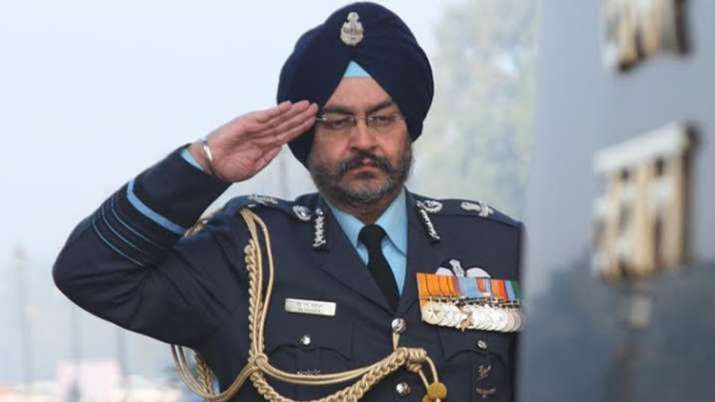Decisiveness of India's political leadership deterred Pak from any misadventure after Balakot: E
- India TV
- Oct 31, 2020
- 3 min read

New Delhi : Former IAF chief BS Dhanoa on Thursday said that the political will deterred Pakistan from any misadventure after the Balakot airstrike in February 2019. In an exclusive chat with India TV's Ajay Kumar, Dhanoa said that the country's political dispensation took a risk despite an election and that it delivered the desired result.
The former IAF chief said that Pakistan could not carry out any major terror attack against India after the Balakot incident because it was aware that any misadventure would invite retaliation.
"Despite an election, the political leadership took a huge risk, but it delivered desired results. This could happen due to the political will," he said.
When asked about the credit for Wing Commander Abhinandan Varthaman's repatriation, he replied: "The credit goes to both the political and diplomatic will for bringing back Abhinandan. But when you talk through these political and diplomatic channels, you keep your military capabilities in the mind."
"We saw Nachiketa... he was captured during the Kargil War by Pakistani forces, and we saw how he was released. Squadron Leader Ajay Ahuja (who flew a MiG-21 in 1999 war) was killed by Pakistani forces," he said.
He said that Pakistan was scared as it was aware of "our capabilities". "They were scared this time. They realised that we can cause severe damage and that could be the reason..." he said.
When asked about the government's go ahead, he said, "The military is always ready for everything. It is the political leadership that takes a decision."
"We had a 'Plan B' and were prepared to execute it".
"The military doesn't act in isolation. It is about the direction from the political leadership," he replied to a question whether Prime Minister Narendra Modi was directly communicating with the defence forces or through the established channels.
"He showed decisiveness. It was quite a big political decision. There were many pitfalls... it was his decisiveness, no doubt on that. There was both political and military risk," he said.
To a question about Rafale fighter jets role, he said, "Rafale is a technical advancement and such aircraft is useful in a dog fight or air chase. The addition of Rafale is going to assist the Indian Air Force in a major way. If there was a conventional war spreading from Gujarat to Kashmir, we can dominate then as our SU 30 will squash all of their F16. But with Rafale, one can target the enemy aircraft in its territory itself. So Rafale and S 400 defence systems are a great technology advancement we have."
In the early hours of February 26, 2019, the IAF jets bombed the Jaish-e-Mohammad (JeM) terror camps in Balakot in Khyber Pakhtunkhwa of Pakistan and avenged the Pulwama terrorist attack that claimed the lives of 40 CRPF personnel.
Former IAF chief's remark comes a day after PML-N leader Ayaz Sadiq recounted the tension within the Pakistan government in February last year. Sadiq, who was the Speaker of the National Assembly during the PML-N government, said in Parliament that Foreign Minister Qureshi had said in an important meeting that if Abhinandan was not released, India would attack Pakistan 'at 9 PM that night' and 'for God's sake we should let him go'.
The 37-year-old IAF pilot was captured by the Pakistani Army on February 27 after his MiG-21 Bison jet was shot down in a dogfight with Pakistani jets during aerial combat. Before his jet was hit, Abhinandan downed an F-16 fighter of Pakistan. The Imran Khan government on March 1 released the IAF pilot.
























Comments